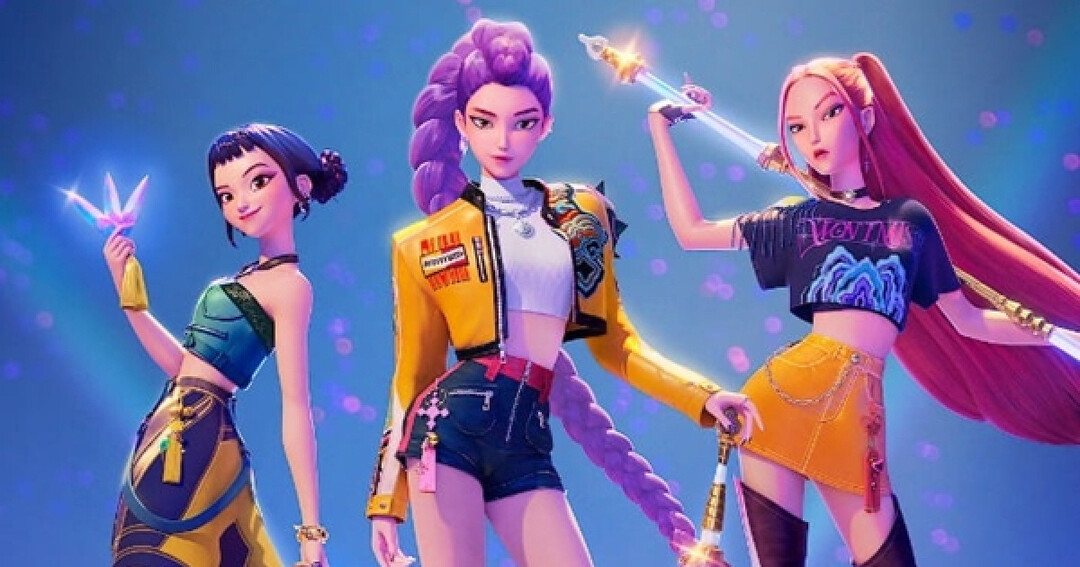
NEW YORK—When Netflix released its animated film "K-pop Demon Hunters" in June, few would have predicted the cultural phenomenon it would become. But in a summer defined by blockbuster sequels and franchise fare, this fantastical musical rooted in Korean culture has emerged as a bona fide sensation, captivating not just children but an entire generation of parents who can't stop re-watching it.
A recent feature in The New York Times, titled “‘K-Pop Demon Hunters’ Is Shaking Everyone’s Heads, Especially Parents’,” highlighted the film's unexpected appeal. It tells the story of how an entire demographic of adults, many of whom previously had no interest in K-pop, have found themselves irresistibly drawn to the movie’s vibrant world, much to their own surprise. This phenomenon is proving the film to be more than just another viral hit; it's a new cultural touchstone reaching the level of past Disney mega-hits like Frozen and Encanto.
For many parents, the journey into the world of "K-pop Demon Hunters" began with a skeptical eye. Sylvia Cruz, a 41-year-old mother of five from North Carolina, initially resisted her children's requests to watch it. "'A movie with ‘demon’ in the title? No way. And what is K-pop anyway?'" she recalled asking. Yet, after finally sitting down to watch it, she was hooked. "It's not that I'm watching demons, I'm watching K-pop," she said. Cruz estimates she has watched the film more than a dozen times, while her kids have seen it closer to 30.
The soundtrack, a powerful blend of rich melodies and intricate harmonies, is the primary source of its allure. "The melodies are so rich and intricate," Cruz explained. "Your body can't help but bop along and sing along." Her experience is far from unique. Across social media, parents are confessing their own obsessions, creating an online community dedicated to their shared fandom. One millennial mother, csapunch, captured the sentiment perfectly in a viral video reel with the caption: "Catchy choruses, key changes, solid bridges, yasssssss".
Another parent, Melissa Jaro, 42, from New Jersey, was similarly unfamiliar with K-pop before watching the film with her two daughters, ages 9 and 7. The experience has since become a family bonding ritual. While her daughter learns to play the film's songs on the piano, Jaro can be found singing the tunes in the basement. This generational bridge is at the heart of the film's success. It has re-awakened the inner "90s Kraken" in millennial parents who once idolized pop groups like NSYNC and the Backstreet Boys, allowing them to reconnect with that era's energy through a new, culturally rich medium.
What's truly remarkable about "K-pop Demon Hunters" is its unprecedented staying power. According to Nielsen data, the film was streamed for approximately 250 million minutes during its initial release week in June. However, instead of the usual decline in viewership, the film’s popularity surged, with viewing time almost quadrupling to 949 million minutes by the end of July. This "reverse run" is a rarity in the streaming world, where new content often quickly overtakes older releases. This sustained interest has led it to become Netflix’s most-watched animated original film of all time.
The film's success isn't confined to the streaming world. Its soundtrack has become a force of its own, with songs like "Golden" and "Your Idol" entering the Billboard Top 10, a testament to their crossover appeal. The virtual K-pop groups from the movie, Huntr/x and Saja Boys, have even achieved chart success that in some cases surpasses that of real-life K-pop titans like BTS and Blackpink on U.S. Spotify charts. The success has been so pronounced that Netflix, an organization famously committed to its streaming model, made a rare move to release a sing-along version of the film in theaters for a limited two-day engagement in August. These screenings sold out across the U.S., driving the film to the top of the domestic box office—a historic first for a Netflix film.
This organic rise to prominence, fueled largely by word-of-mouth rather than a massive marketing campaign, highlights a crucial point: audiences are hungry for novelty. In a landscape saturated with sequels and established franchises, the film's originality and specific cultural voice are what have truly resonated. As The New York Times noted, the film’s success can be summed up by James Joyce's famous idea: "In the particular is contained the universal." By celebrating its unique Korean identity and pop culture roots, "K-pop Demon Hunters" has created a universally appealing story that continues to enchant audiences, proving that the next big hit might just be the one you least expect.
[Copyright (c) Global Economic Times. All Rights Reserved.]




























